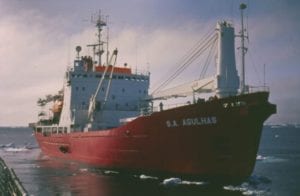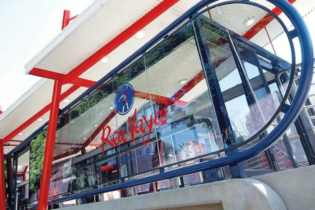South Africa’s maritime industry has drifted in the shadows for too long and the government and industry bodies have begun a process of revitalising this critical part of our economy, which will lead to the creation of thousands of new jobs.
The Department of Transport’s deputy director general of maritime, Hamida Fakira, said that work has been ongoing since 2010 and that the potential of the industry must be exploited. From a job creation perspective, focus over the next few years will lean more towards the repair, servicing and recycling of vessels than on the building of ships. Just from ship repair, some 5000 jobs can be created at dry docks with a further 10000 indirect jobs that can be created through ship repairs annually. There are roughly 2000 ships in South Africa that need to be repaired and opportunities also existed in “green” ship recycling. Fakira explained that there was a lot of steel that could be harvested and recycled from old vessels and that the practice was labour intensive. Regarding on-deck employment opportunities on board ships, Fakira said the average vessel only had a crew of about 20 and jobs were for skilled individuals that excelled in maths and science. Seafaring was not a solution to South Africa’s unemployment problem but rather an opportunity for small businesses and companies to benefit from indirectly. “South Africa needs to get a bigger piece of the shipping industry pie,” said Fakira. The DDG explained that the economies of scale did not tip in SA’s favour when it came to shaping South Africa as a ship building destination. “It costs the Chinese $30m (R250m) to build a ship, but a quote we got in 2009 to build a ship ourselves was for $40m. Government would need to subsidise the remaining $10m which is unsustainable. So ship building is not an easy market to break in to.”High taxation in the shipping industry remains a concern as well as the fact that financial institutions shy away from extending loans to be used in the maritime industry due to the associated risk.
The DDG highlighted that docking issues as well as the cost of South Africa’s fees and levies would be investigated, in particular, with differential fees a possibility for local shipping companies to incentivise the industry. Executive officer of the maritime chamber in the Transport Education and Training Authority, Victor Muhlberg, highlighted that future growth in the industry necessitated greater training. Muhlberg said: “On-board experience is integral to training seafarers and the problem of finding berths has bedevilled the sector for years. Some ad-hoc initiatives have been followed over the years, but the bottom line is there have been insufficient berths to accommodate our ratings and cadets.” A note of encouragement was that maritime studies has already been integrated into the school curriculum. Two subjects, maritime economics and nautical science, recognised by the Western Cape department of education, has already been implemented at Simons Town High School. Source: http://www.thenewage.co.za






